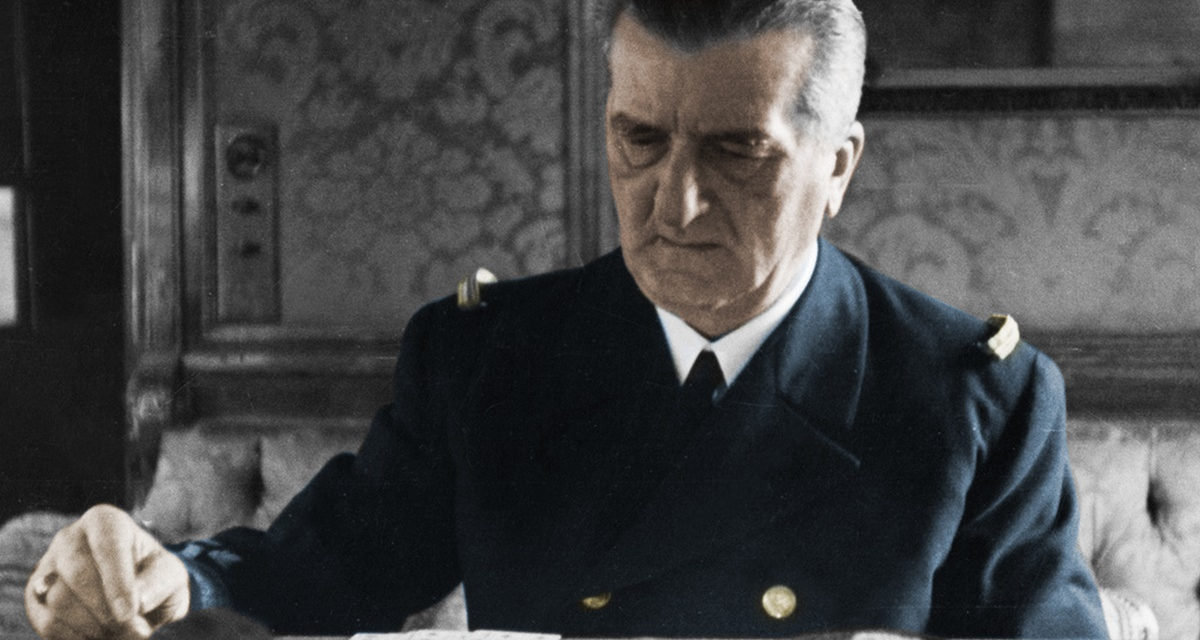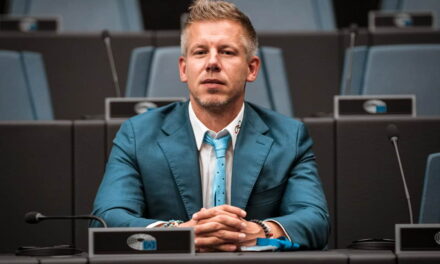A fair view of the Governor is one that does not measure him by a different standard than other historical figures.
The time has come for a fair assessment of Miklós Horthy - writes Attila Bánó in his opening speech .
What does fairness refer to here, what position can be considered fair? I think that what does not measure Horthy by a different standard than other historical characters does not attribute to Horthy what he did not commit, but does not diminish his responsibility for what he committed or what manifests itself as an omission.
"Horthy's relationship with Jews was not hostile," claims Bánó. Rabbi Slomó Köves contrasts this as the earliest evidence of Horthy's anti-Semitism. It is true that the law was unfair and exclusionary at the same time
let's not forget that even in the 1950s there was a numerus clausus at medical universities in America,
and the American Supreme Court has only just canceled the procedure by which American universities wanted to provide blacks with a number of places corresponding to their social proportion - at the expense of whites (including Jews) and Asians. Not to mention that
the eradication of "inequality", i.e. everyone should benefit from all good things in accordance with the number of members of their birth group, today is the majority position in the educated West.
As painful as it is, the same idea is behind the numerus clausus.
Let's also not forget that Horthy was head of state, with specific rights and powers, not an absolute ruler. Yet all the bad things that happened in that era are attributed to him and his responsibility is highlighted. The laws were passed by the Parliament, the executive power was in the hands of the government. By the way, the numerus clausus was introduced under strong pressure from the university students, after a losing war, when the universities of Bratislava and Cluj had to be moved to Trianon Hungary. By the way, the admission of female students was also restricted during that era.
Horthy was undeniably anti-Semitic, he wanted to suppress the Jews in economic life, but he did not want to go further than that, especially not to exterminate them. Rabbi Köves correctly states that
"Although unlike their fellow Europeans who were destroyed by the Nazis, the lives of the majority of Hungarian Jews were in relative physical safety until the spring of 1944
in Spiegel on May 7, 2020 should be mentioned here "All responsibility falls on Germany for World War II. for WWII and the Holocaust. Whoever casts doubt on this and considers other peoples to be guilty is committing an injustice against the victims," he wrote.
"The responsibility for the crime against humanity of the Holocaust rests with Germany alone. Anyone who raises doubts about this and casts other nations in the role of the perpetrator is doing injustice to the victims. It instrumentalizes history and divides Europe.”
"In accordance with the war against the Soviet Union, the state administration decided to deport Jews without Hungarian citizenship to the territory of Ukraine, to the area around Kamenyets-Podolsk, as Sándor Szakály, driven by "some" insensitivity, put it in 2014, they became the victims of "alien law enforcement". The emigrants, together with the local Jews, were machine-gunned by SS units. The mass murder had a total of about 23,600 victims. It is hard to imagine that all this could have happened without at least the tacit consent of Horthy," writes Slomó Köves.
Sándor Szakály was dragged for using the word alien police, although I don't know what else to call the deportation of foreign nationals during wartime.
The mass murder was committed by the Germans. The idea that the Germans would have asked for Horthy's consent to kill non-Hungarian citizens deported from Hungarian territory is unfounded, and the assumption without any evidence is not historical.
The Hungarian authorities acted in an inhumane (but not unusual for the time) manner, they often deported Hungarian citizens, but the mass murder cannot be blamed on them, it was committed by the Germans.
Jews were deported from all the countries of Europe occupied by the Germans and most of them were killed in the German camps. The Germans and their helpers organized the deportations, whose responsibility cannot be minimized, but who would not have been able to play a role without the occupation. There are two exceptions to this: Romania, where the Romanian authorities killed 250,000 Jews in the areas under their control, and Denmark, from where around 7,200 Jews fled to Sweden. At the same time, the Danes did not let German Jews in , but turned them back. And the United States mostly only allowed well-educated Jews, immigration quotas were reduced during the war.
Can we seriously believe that a single person in Hungary could have prevented what happened in all the occupied countries?
Horthy can be criticized for not speaking out against the deportation of rural Jews, for showing passivity. I doubt he could have prevented it. The Prime Minister was pro-German, the leading positions in the public administration were replaced by pro-German officials. Some of the parliamentarians were prisoners of the Gestapo. Horthy was not in control of the situation to the same extent as before, he could not count on the loyalty of the officials. Moreover, as the failure of the escape attempt showed, neither did the military. When Horthy ordered the deportations to stop, they continued for a while.
"It is typical of the internal affairs management that, despite the clear ban, people were deported from the villages around Budapest even on July 8 and 9"
– can be read on the Degob website .
The responsibility for the Hungarian public administration, which has already undergone a purge, is usually attributed to Horthy and the right wing. Of course, it never comes up that the left acknowledges the responsibility of the Hungarian administration under their control for the deportation of the Swabians, the dragging of 600,000 people to the Gulag, the sweeping of attics, the mass reprisals after 1956 and the soft dictatorship entangled by the secret services. Because the left wing and Hungarian society have nothing to do with them, they were not them. Hungarian society is only guilty of 1944, not for anything before or after, but very much and irreparably for 1944.
Slomó Köves also mentions labor service workers. About 40 percent of them died in Soviet prisoner of war camps! This is often compared to the Holocaust, it is not the fault of the communists, so nobody or the Germans are responsible.
At the Crown Council meeting on June 26, Horthy said:
"I can't stand this anymore! I will not allow deportation to continue to bring shame to Hungarians! The government should take measures to remove Baky and Endre from their positions! Stop the deportation of Jews from Budapest! The government should take the necessary steps."
Horthy's position was also discussed at the Council of Ministers, where it was noted, but no action was taken. The cabinet sabotaged the fulfillment of Horthy's demands, and then Horthy had to back down. Veesenmayer reported this to Berlin on June 30: "The governor... withdrew his protest only when Minister of the Interior Jaross acted very forcefully against it."
Horthy was anti-Semitic. He convinced the Germans that Hungary could regain its independence if it gave in to their demands.
After the occupation, power slipped out of his hands, regardless of the war situation, he only had the strength and opportunity to save Budapest's Jews on July 6.
Bernát László Veszprémy in his recently published book " clearly proves that the leaders of the Jewish council acted with Horthy, and the result of their negotiations was the entry of Ferenc Koszorús's troops into the capital, the Hungarian The largest rescue operation of the Holocaust.
Those who blame Horthy for staying in place even after the occupation cannot answer the question of who would have saved the Jews of Budapest if Horthy was no longer the head of state.
Horthy cannot be held responsible for the Holocaust in one person. Both Attila Bánó and Slomó Köves need to be more nuanced in their assessment. As a Hungarian Jew, I would consider it wise if the opinions of contemporary Jews were taken into account more than before. held a thanksgiving service on Miklós Horthy's 76th birthday, June 18, 1944, in the Hősök church in Wesselényi Street .
"Dr. Chief Rabbi Ferenc Hevesi, according to the newspaper, "in a high-flying speech, remembered the glorious reign of the Lord Governor and in a beseeching prayer asked the Almighty to bless our Lord Governor and the Hungarian homeland."
In 1947, the rabbis of Hungarian neologism declared March 19, the day of the German invasion, to be a day of mourning combined with fasting for "eternal times". They only knew why they didn't choose Horthy's birthday or the day the deportations began...
Gábor Sebes, former politician, publicist
Featured Image: Wikipedia













